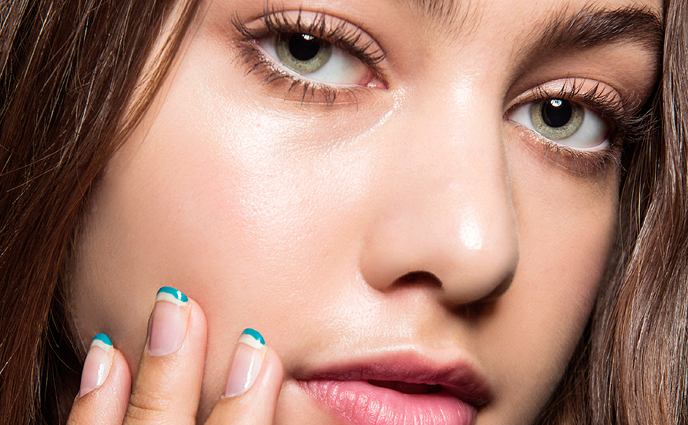Thanks to these unique attributes, salicylic acid works on acne in two different ways. "It exfoliates and dissolves the connection between the dead skin cells on the surface of the skin. Then, it attaches to oil, removing and dislodging it from pores," explains Joshua Zeichner, MD, assistant clinical professor of dermatology at Mount Sinai Hospital in New York City. This M.O. is exactly why it's choice for combating breakouts and keeping your complexion clear.
Image via Getty
Image via Getty
When it comes to treating acne, salicylic acid typically gets put up against and compared to benzoyl peroxide (AKA BP, as skin docs call it). Think of the two like chocolate and vanilla ice cream -- they're very different, some people have a definitive preference towards one over the other, but they can still work well together (hello, soft serve swirl cone). Unlike salicylic acid, benzoyl peroxide is antibacterial and works by targeting the bacteria that cause acne. "P. acnes bacteria are anaerobic and live without oxygen. Benzoyl peroxide creates an oxygenation reaction that kills them," explains Zeichner. But, "since both bacteria and oil contribute to acne, it can be beneficial to use both ingredients together," adds Gohara.
Image via www.wrinkles.org
Image via www.wrinkles.org
Not necessarily. "Because it dissolves oil and helps unclog pores, it's choice for dealing with blackheads and whiteheads, or to spot treat the occasional pimple," Zeichner tells us. If you're dealing with chronic, large blemishes that are red and inflamed, it may not cut the mustard. More on that next...
Image via Getty
Image via Getty
"The lines are a little blurred," says Zeichner (insert Robin Thicke reference here). "Traditionally, the thinking is to use a little bit of both since they work differently." Salicylic acid alone is good if you're dealing with oily skin and clogged pores (typically, this is how teenage acne first manifests, Zeichner adds). But if your pimples are red, swollen or filled with pus, there's likely a bacterial element at play, and it may be time to add some benzoyl peroxide into the mix, notes Gohara.
Image via Getty
Image via Getty
In a word, yes. It not only offers a whole slew of therapeutic benefits for treating skin conditions like warts and psoriasis, but it also helps with more superficial concerns, namely, signs of aging. Salicylic acid's ability to exfoliate makes it great for addressing complexion imperfections like discoloration and fine lines. "By promoting cell turnover, it leaves skin looking fresher and more radiant," Zeichner says. Yes, please.
Image via Getty
Image via Getty




